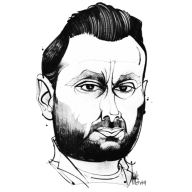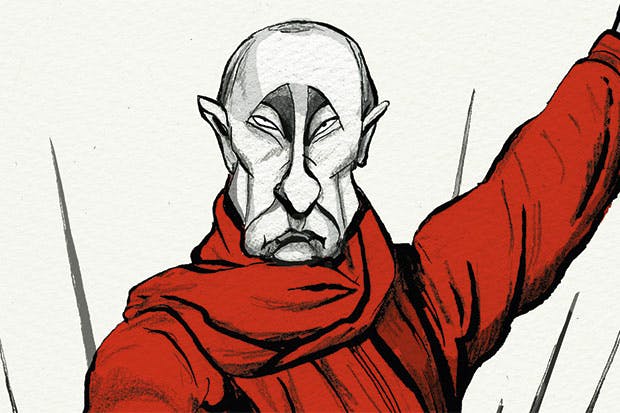A Russian ship has just rammed a Ukrainian vessel, opened fire on it and captured its sailors. Ukraine has called it an act of war, and legally it may be right. But more than this the act reveals the nature of the true Russia.
At this year’s Helsinki summit, some were aghast at how subservient Donald Trump appeared to be toward Vladimir Putin. His behaviour was seen as treasonous and supposedly pointed to the power Russia now wields. For the alt-right, Putin is seen as a model – a “strongman” who is making his country great again. Meanwhile, the Democrats see an all-powerful Russia behind everything. And there is a similar narrative about Russian meddling in the 2016 Brexit referendum.
All of this could not be further from the truth. The reality is that Russia is weak, and Putin desperately needs to stay in power; the only alternative for him is prison. Russia is a single resource economy and with falling energy prices, decreased living standards are pervasive across Russia. The result has been an increase in Russian adventurism, everywhere from Ukraine to Syria as Putin seeks to project power to cover weakness.
And this is where the danger lies: from ancient Greece to Weimar Germany, history teaches us that countries do stupid, dangerous things not when they are strong but when they are weak. This – not the false talk of the re-emergence of Russia as “superpower” – is what should terrify us all.
It is important to understand the gravity of what has occurred. I spent almost a year in Ukraine from 2014 to 2015 covering the war. At all times Russia denied involvement, despite all the tanks and heavy weaponry I saw; and despite the world knowing it was all true. Still, Moscow denied responsibility.
But an open attack by a flag-bearing Russian vessel (remember the pains Russia took to give the ‘little green men’ who invaded Crimea no identifying insignia) marks a total change in Russia’s political approach to the war. The violence was always there: the willingness to do it openly was not. So what has changed?
Fundamentally: Russia’s domestic situation, which is getting worse. The recent law to raise the retirement age by five years sparked a public outcry: for the first time in years, Putin’s approval rating plummeted. It was a move forced by the severe financial constraints facing the country.
The Story of Putinism has been one of a straight deal with the Russian people. In the early years when energy prices were high and the money rolled in, the deal was simple: in exchange for accepting greater Kremlin autocracy the people got higher standards of living. Now, with energy prices reduced and Russia sanctioned the deal has changed. Accept more autocracy and in return get to see Russia re-emerge as a “great power.”
The problem, of course, is that adventurism costs yet more money so the cycle is self-fulfilling. The more you boast about your ‘great power’ status the more you have to spend to keep it up. Critically, the more you have to act, in this case invariably aggressively.
And this is where the danger lies. One day, Russia may become boxed in by its own rhetoric; or find itself taking brinkmanship too far. An act like this can easily spiral and drag other countries into the mix, and that way lies war.
As these events in the Black Sea show: the poorer and more unstable Russia becomes the more foolhardy it gets. Today shows Russia is more dangerous than ever, but not because it is strong but precisely because it is becoming increasingly weak.
David Patrikarakos is the author of War in 140 Characters: How Social Media Is Reshaping Conflict in the Twenty-First Century. He spent a year in Ukraine covering the Russia/Ukraine war







Comments